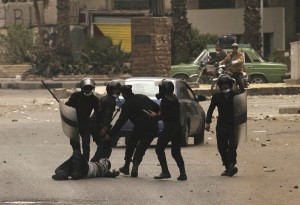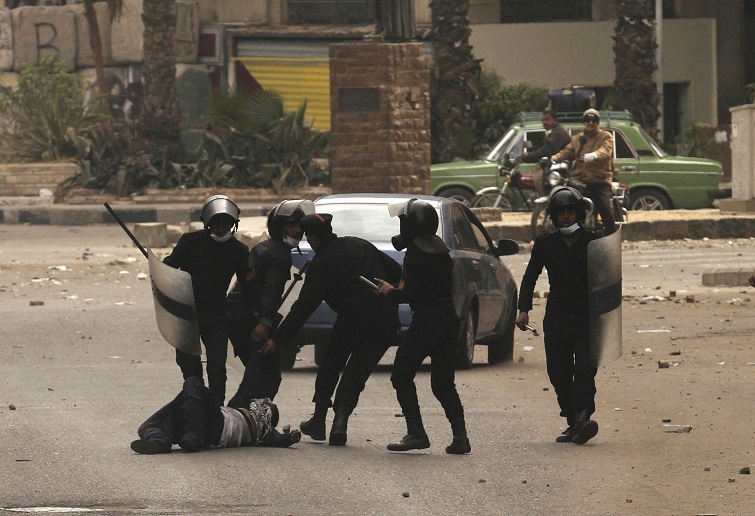
(AFP File Photo)
Nation Without Torture, an anti-torture campaign established in November 2012, has called for a clear definition of crimes against humanity in the constitution and an outline of punishment for those who commit such crimes.
In a press conference held on Monday, the campaign called for including a clear definition for torture, as per the 1984 United Nations Convention against Torture, in the constitution.
The UN convention defines torture as: “any act by which severe pain or suffering, whether physical or mental, is intentionally inflicted on a person for such purposes as obtaining from him or a third person information or a confession, punishing him for an act he or a third person has committed or is suspected of having committed, or intimidating or coercing him or a third person, or for any reason based on discrimination of any kind…”
Nation Without Torture Campaign member and human rights lawyer Amr Imam said the campaign is currently scheduling a listening session with the Constituent Assembly, tasked with drafting amendments to the 2012 constitution, to put forward its demands.
“Defining torture in the constitution would allow us to work on legislations to punish any public employees who inflict torture upon citizens,” Imam said.
Nation Without Torture also called for allowing the National Council for Human Rights (NCHR) as well as human rights committees within unions and civil society organisations to monitor the police apparatus’ performance.
“The police apparatus and detention facilities must also be under judicial inspection,” Imam said.
Hany Abdel Latif, spokesman of the Ministry of Interior, said that the police apparatus “is indeed under judicial inspection”, both legally and practically speaking.
“We strive to create a society which considers torture a crime and not a punishment,” Imam said. He added that children’s detention facilities in Egypt turn children detainees into criminals.
Nation Without Torture stressed that the detainee’s rights to contact family and choose a legal representative must be respected. It called for a legal text which specifies places of detention, adding that any detention must be warranted by a specialised judge, meanwhile notifying the detainee with the reasons for his detention.
The campaign also called for the declaration of a state of emergency to be limited to times of war, with the approval of parliament or after holding a referendum on the matter.
The Nation Without Torture campaign is an anti-torture initiative founded by victims of torture and supported by the Hisham Mubarak Law Centre. The main goal of the campaign is to pressure the authorities into taking action in all torture cases since 25 January 2011, as well as calling for the effective supervision of prisons and the enforcement of laws regarding torture.


